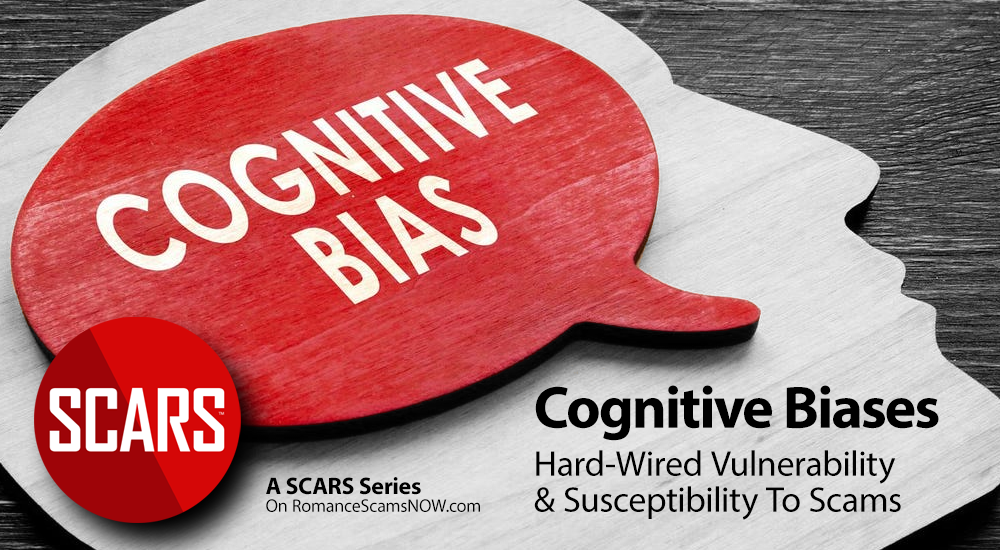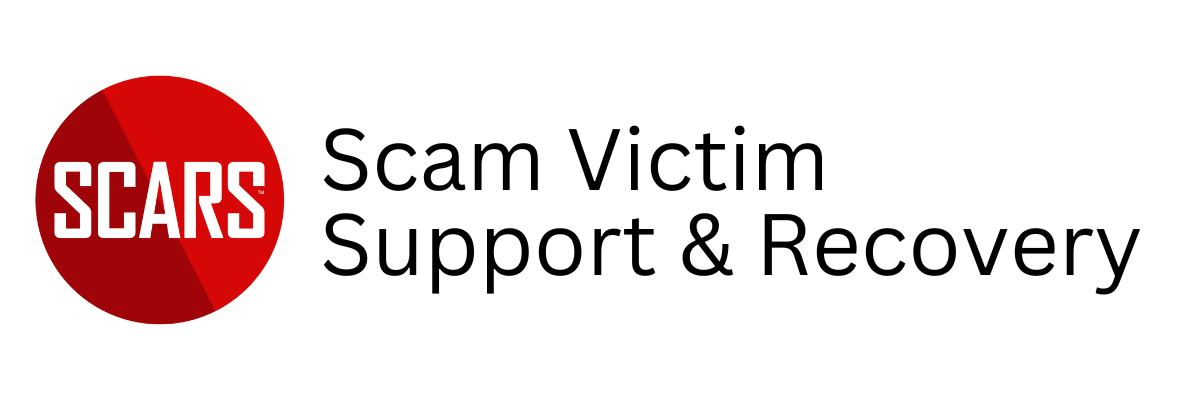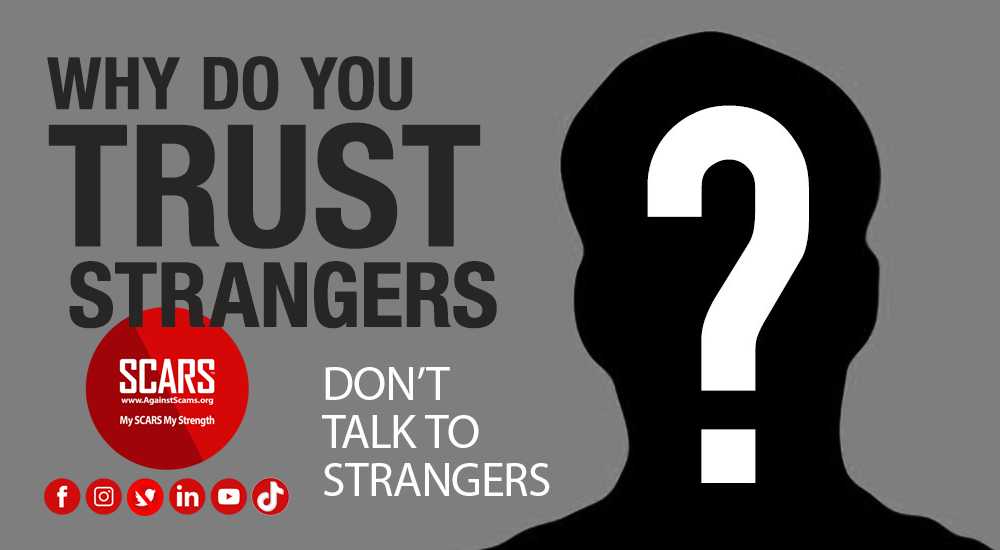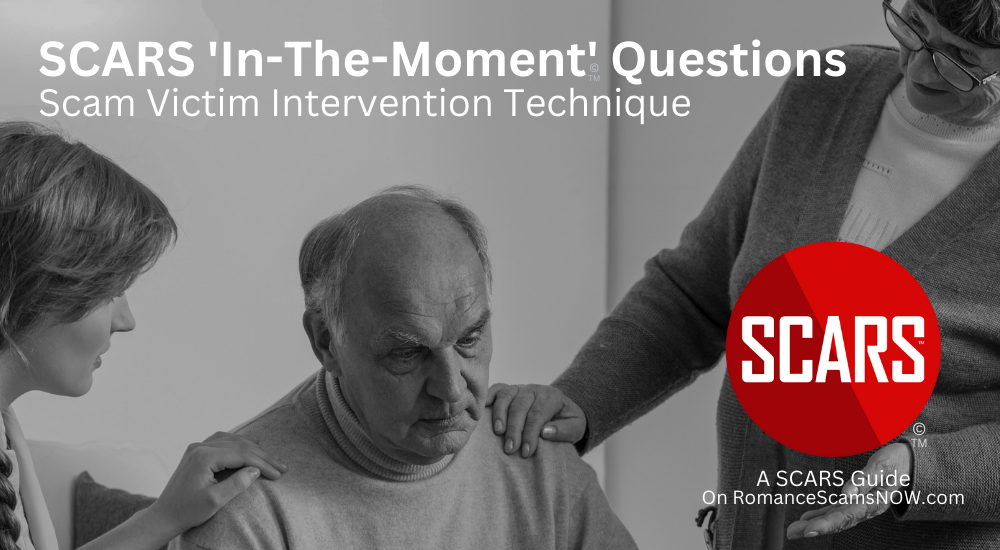Authors:
• Vianey Gonzalez B.Sc(Psych) – Psychologist, Certified Deception Professional, Psychology Advisory Panel & Director of the Society of Citizens Against Relationship Scams Inc.
• Tim McGuinness, Ph.D. – Anthropologist, Scientist, Director of the Society of Citizens Against Relationship Scams Inc.
Article Abstract
Ambiguity Aversion is a cognitive bias preferring known risks over unknown ones, significantly impacts susceptibility to scams and complicates victim recovery.
Before falling prey to scams, individuals are drawn to fraudulent schemes offering clear outcomes, exploiting their aversion to uncertainty. During scams, victims avoid doubt, dismissing red flags to maintain trust in fraudulent schemes. After victimization, ambiguity aversion leads to self-blame and reluctance to accept losses, hindering recovery efforts.
Victims resist exploring new opportunities, clinging to familiarity and perpetuating feelings of helplessness. To address ambiguity aversion, awareness, and education are vital. Understanding scam tactics empowers individuals to make informed decisions and resist fraudulent schemes.
Through awareness, education, and support, individuals can navigate ambiguity aversion, reduce susceptibility to scams, and promote holistic recovery.
This article is part of SCARS continuing commitment to helping the victims of scams (financial fraud) to better understand the psychology of scams. In other words, why are victims vulnerable?
Ambiguity Aversion – The Cognitive Bias That Shuns Uncertainty
When it comes to decision-making, humans often exhibit fascinating yet sometimes perplexing cognitive bias called Ambiguity Aversion.
Ambiguity Aversion is a cognitive bias that influences how individuals perceive and respond to uncertain or ambiguous situations. Understanding this bias sheds light on why people often prefer known risks over unknown ones and how it impacts various aspects of life, from financial choices to interpersonal relationships.
What is Ambiguity Aversion?
Ambiguity aversion refers to the tendency for individuals to prefer known risks over unknown risks, even when the outcomes are objectively the same or when the unknown risk offers a potentially higher reward. In other words, people tend to avoid situations where the probabilities of different outcomes are unclear or ambiguous, opting instead for scenarios where the probabilities are well-defined, even if bad.
Origins and Psychological Mechanisms: The roots of ambiguity aversion can be traced to several psychological mechanisms. One key factor is the discomfort caused by uncertainty itself. Humans have a natural inclination to seek clarity and predictability, as uncertainty often triggers feelings of anxiety and apprehension. Ambiguity aversion can also be attributed to a desire for control and a reluctance to relinquish it in the face of unknown outcomes. Additionally, cognitive biases such as loss aversion and the familiarity heuristic may contribute to individuals’ aversion to ambiguity.
Manifestations in Decision-Making: Ambiguity aversion manifests in various domains of decision-making, influencing choices related to finance, health, career, and relationships. In financial decision-making, for example, investors may exhibit a preference for familiar assets or investment strategies, even if alternative options offer potentially higher returns. Similarly, individuals may opt for familiar medical treatments over experimental ones, despite the latter’s potential benefits.
Implications for Risk Management: While ambiguity aversion may lead individuals to avoid uncertain situations, it can also impact risk management strategies. For businesses and organizations, understanding and addressing ambiguity aversion is crucial for effective decision-making and innovation. By acknowledging the inherent discomfort associated with uncertainty, leaders can create environments that encourage experimentation, adaptability, and creative problem-solving. Moreover, fostering a culture that embraces calculated risks while providing support and resources can help mitigate the negative effects of ambiguity aversion.
Overcoming Ambiguity Aversion: Overcoming ambiguity aversion requires a combination of awareness, education, and practice. By acknowledging the bias and its impact on decision-making, individuals can begin to challenge their aversion to ambiguity and explore new possibilities. Strategies such as reframing uncertainties as opportunities for growth, seeking diverse perspectives, and gradually exposing oneself to ambiguous situations can help build tolerance and resilience. Additionally, cultivating a mindset of curiosity and embracing the unknown as part of life’s journey can contribute to a more adaptive and fulfilling approach to decision-making.
Ambiguity aversion is a fascinating cognitive bias that influences how individuals navigate the complexities of uncertainty in decision-making. While it can lead to risk-averse behavior and missed opportunities, awareness and proactive measures can help mitigate its effects. By embracing ambiguity as an inherent aspect of life and learning to navigate uncertain situations with courage and curiosity, individuals can cultivate resilience, creativity, and adaptability in the face of ambiguity. Ultimately, understanding ambiguity aversion offers valuable insights into human behavior and provides a pathway to more informed and empowered decision-making.
Ambiguity Aversion in Scams
Ambiguity aversion cognitive bias plays a significant role in scams and can impact both potential victims before the scam, as well as victims during and after the scam.
Here’s how:
Before the Scam:
- Preying on Certainty: Scammers often exploit ambiguity aversion by presenting fraudulent schemes as guaranteed opportunities with clear and certain outcomes. They may offer lucrative investments or promises of financial gain without providing transparent information about the risks involved. Potential victims, driven by their aversion to uncertainty, may be more inclined to trust these schemes without conducting thorough due diligence.
- In Romance Scams: The early expressions of love and affection serve the same purpose. These become recognizable certainties and preferable to walking away with the uncertainty of what might be found in the future – this is the old saying “a bird in the hand is worth two in the bush.”
During the Scam:
- Avoidance of Doubt: As the scam unfolds, victims may exhibit ambiguity aversion by avoiding or dismissing any doubts or red flags that arise during the interaction with the scammer. They may overlook inconsistencies or discrepancies in the scammer’s story, preferring to maintain a sense of certainty and trust in the fraudulent scheme rather than confronting the uncertainty of being deceived.
After the Scam:
- Self-Blame and Rationalization: Ambiguity aversion contributes to victims’ reluctance to acknowledge their victimization and accept the ambiguity surrounding their losses. Instead of confronting the uncertainty of their situation, they usually engage in self-blame or rationalization, attributing their losses to their own perceived mistakes or external factors beyond their control. This aversion to ambiguity hinders victims from seeking help or reporting the scam due to feelings of embarrassment or shame.
- Reinforcement of Familiarity: After becoming a victim to a scam, individuals may be more susceptible to subsequent scams that offer familiar narratives or promises of certainty. Ambiguity aversion can lead victims to gravitate towards schemes that resemble the one they were previously deceived by, as they seek reassurance and familiarity in the face of uncertainty.
- Resistance to Recovery: Ambiguity aversion may also impede victims’ recovery efforts by discouraging them from exploring new opportunities or seeking assistance in rebuilding their lives. They may prefer to adhere to familiar routines or avoid unfamiliar situations that entail uncertainty, even if doing so limits their potential for growth and recovery. Denial or anger are certainties, where real recovery is very uncertain.
Overall, ambiguity aversion cognitive bias can exacerbate the vulnerability of individuals to scams and hinder their ability to recognize, resist, and recover from fraudulent schemes.
By raising awareness of this bias and promoting education on the tactics used by scammers, individuals can empower themselves to make more informed decisions and mitigate the risks associated with ambiguity aversion. Additionally, providing support and resources for scam victims like SCARS does, helps to overcome their aversion to uncertainty and can facilitate their recovery and resilience in the aftermath of victimization.
Review: How Do Cognitive Biases Make People Vulnerable To Scams, Fraud, and Deception
How do cognitive biases play a role in making people vulnerable and susceptible to scams, fraud, and deception?
Cognitive biases are mental shortcuts that allow people to make quick decisions and judgments based on their past experiences and memories. These biases can be helpful in many situations, as they allow people to process large amounts of information quickly and efficiently. However, they can also make people vulnerable to scams, fraud, and deception.
One reason why cognitive biases make people vulnerable to scams is that they can lead people to make judgments that are not based on evidence or logical reasoning. For example, Confirmation Bias (a major bias that makes people vulnerable) is the tendency to seek out and interpret information that supports one’s preexisting beliefs, while ignoring or dismissing information that contradicts them. This can make people more susceptible to scams that appeal to their beliefs or biases, as they are more likely to believe the scammer’s claims without critically evaluating the evidence.
There are several ways that people can protect themselves from scams, fraud, and deception. One way is to be aware of common cognitive biases and how they can affect decision-making. This can help people to be more mindful of their thought processes and to question their own judgments.
Another way to protect oneself is to be skeptical of claims and offers that seem too good to be true. It is important to carefully evaluate the evidence and to ask questions before making a decision. This can help people to avoid falling for scams that rely on emotional appeals or incomplete information.
It can also be helpful to seek out additional sources of information and to consult with trusted friends, family members, or professionals before making a decision. This can provide a more balanced perspective and help to identify any potential red flags.
Overall, cognitive biases can make people vulnerable to scams, fraud, and deception by leading them to make judgments that are not based on evidence or logical reasoning, and by causing them to make irrational or risky decisions. However, by being aware of these biases and taking steps to protect oneself, people can reduce their risk of falling victim to these types of scams.
See our Catalog Cognitive Biases here: Cognitive Biases Catalog 2024 https://romancescamsnow.com/dating-scams/cognitive-biases-catalog/
In General – Overcoming Our Cognitive Biases
Overcoming cognitive biases requires deliberate effort and a willingness to challenge our ingrained thought patterns. Here are some strategies to help mitigate the impact of cognitive biases:
- Awareness: Recognize and acknowledge your own cognitive biases. Educate yourself about common biases and reflect on how they might influence your decision-making processes.
- Pause and Reflect: When faced with a decision or judgment, take a moment to pause and consider alternative perspectives. Question your initial assumptions and examine the evidence objectively before reaching a conclusion.
- Seek Diverse Perspectives: Actively seek out input from individuals with different backgrounds, experiences, and viewpoints. Engaging in discussions with diverse groups can help counteract the effects of confirmation bias and broaden your understanding of complex issues.
- Challenge Assumptions: Practice critical thinking by questioning your own beliefs and assumptions. Ask yourself why you hold a particular viewpoint and consider alternative explanations or interpretations.
- Use Decision-Making Tools: Employ decision-making frameworks or tools, such as cost-benefit analysis or scenario planning, to structure your thinking and evaluate options systematically. These tools can help reduce the influence of biases by providing a structured approach to decision-making.
- Embrace Uncertainty: Accept that uncertainty is inherent in many situations and be open to revising your opinions in light of new information. Avoid overconfidence and recognize the limitations of your knowledge and expertise.
- Feedback and Reflection: Solicit feedback from others and reflect on past decisions to identify instances where cognitive biases may have influenced your judgment. Learning from feedback and self-reflection can help you develop greater self-awareness and improve decision-making over time.
- Develop Emotional Intelligence: Build your emotional intelligence by cultivating self-awareness, empathy, and emotional regulation skills. Understanding your own emotions and recognizing their impact on decision-making can help you mitigate the influence of biases driven by emotional responses.
- Practice Mindfulness: Incorporate mindfulness techniques into your daily routine to enhance your ability to observe and monitor your thoughts without judgment. Mindfulness practices can help you become more attuned to your cognitive processes and better equipped to recognize and manage biases as they arise.
- Continuous Learning: Commit to lifelong learning and personal development. Stay curious, seek out new information, and challenge your existing beliefs regularly. Engaging in learning opportunities can expand your perspective and reduce the likelihood of falling victim to cognitive biases.
See our Catalog Cognitive Biases here: Cognitive Biases Catalog 2024 https://romancescamsnow.com/dating-scams/cognitive-biases-catalog/
Summary
Cognitive biases do make people more vulnerable to scams, fraud, and deception by causing them to ignore warning signs, pay more attention to information that supports their preexisting beliefs, rely on incomplete information, and anchor their decisions to easy and often incorrect information.
By being aware of these biases and making an effort to overcome them, people can be better equipped to avoid falling victim to scams and other forms of deception.
Important Information for New Scam Victims
- Please visit www.ScamVictimsSupport.org – a SCARS Website for New Scam Victims & Sextortion Victims
- Enroll in FREE SCARS Scam Survivor’s School now at www.SCARSeducation.org
- Please visit www.ScamPsychology.org – to more fully understand the psychological concepts involved in scams and scam victim recovery
If you are looking for local trauma counselors please visit counseling.AgainstScams.org or join SCARS for our counseling/therapy benefit: membership.AgainstScams.org
If you need to speak with someone now, you can dial 988 or find phone numbers for crisis hotlines all around the world here: www.opencounseling.com/suicide-hotlines
SCARS Resources:
- Getting Started Right: ScamVictimsSupport.org
- Sextortion Scam Victims: Sextortion Victims Support – The Essentials (scamvictimssupport.org)
- For New Victims of Relationship Scams newvictim.AgainstScams.org
- Subscribe to SCARS Newsletter newsletter.againstscams.org
- Sign up for SCARS professional support & recovery groups, visit support.AgainstScams.org
- Join our Scam Survivors United Chat & Discussion Group facebook.com/groups/scam.survivors.united
- Find competent trauma counselors or therapists, visit counseling.AgainstScams.org
- Become a SCARS Member and get free counseling benefits, visit membership.AgainstScams.org
- Report each and every crime, learn how to at reporting.AgainstScams.org
- Learn more about Scams & Scammers at RomanceScamsNOW.com and ScamsNOW.com
- Scammer photos ScammerPhotos.com
- SCARS Videos youtube.AgainstScams.org
- Self-Help Books for Scam Victims are at shop.AgainstScams.org
- Donate to SCARS and help us help others at donate.AgainstScams.org
- Worldwide Crisis Hotlines: https://blog.opencounseling.com/suicide-hotlines/
Other Cyber Resources
- Block Scam Domains: Quad9.net
- Global Cyber Alliance ACT Cybersecurity Tool Website: Actionable Cybersecurity Tools (ACT) (globalcyberalliance.org) https://act.globalcyberalliance.org/index.php/Actionable_Cybersecurity_Tools_(ACT)_-_Simplified_Cybersecurity_Protection
- Wizer Cybersecurity Training – Free Security Awareness Training, Phishing Simulation and Gamification (wizer-training.com)
-/ 30 /-
What do you think about this?
Please share your thoughts in a comment below!
Do You Need Support?
Get It Now!
SCARS provides the leading Support & Recovery program for relationship scam victims – completely FREE!
Our managed peer support groups allow victims to talk to other survivors and recover in the most experienced environment possible, for as long as they need. Recovery takes as long as it takes – we put no limits on our support!
SCARS is the most trusted support & education provider in the world. Our team is certified in trauma-informed care, grief counseling, and so much more!
To apply to join our groups visit support.AgainstScams.org
We also offer separate support groups for family & friends too.
Become a
SCARS STAR™ Member
SCARS offers memberships in our STAR program, which includes many benefits for a very low annual membership fee!
SCARS STAR Membership benefits include:
- FREE Counseling or Therapy Benefit from our partner BetterHelp.com
- Exclusive members-only content & publications
- Discounts on SCARS Self-Help Books Save
- And more!
To learn more about the SCARS STAR Membership visit membership.AgainstScams.org
To become a SCARS STAR Member right now visit join.AgainstScams.org
To Learn More Also Look At Our Article Catalogs
Scam & Crime Types
More SCARS
- ScamsNOW Magazine – ScamsNOW.com
- ContraEstafas.org
- ScammerPhotos.com
- AnyScam.com – reporting
- AgainstScams.org – SCARS Corporate Website
- SCARS YouTube Video Channel



















Leave A Comment